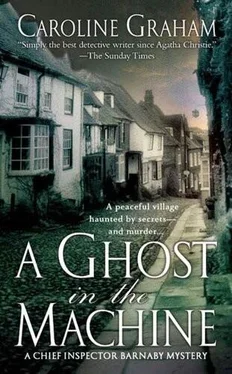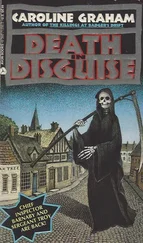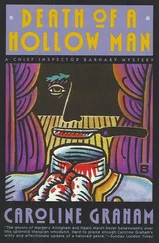The majority of the council tenants had no idea they constituted a stigma and wouldn’t have given a monkey’s had anyone been brave or foolish enough to point it out. But there was one exception. Returning from the Middle East seven months pregnant, Ava Garret had been reluctantly taken in by her now elderly parents. Rows started almost immediately and, contrary to all received wisdom, nothing changed once the baby was born. Ava’s mother, barely able to cope with the stairs and already on the waiting list for a council bungalow, made some increasingly urgent phone calls, and when Karen was six months old, she and her husband moved out.
Ava stayed on in sole possession of a modern, two-and-a-bit bedroomed, centrally heated home on which both the rent and council tax were paid. Far from being grateful she seethed with resentment. Removing the number of her house and renaming it Rainbow Lodge merely confused the postman. The neighbours, who laughed at her pretensions, had not always been unkind. When she was first on her own they would ask her round for a cup of tea and a chat. A surplus of allotment vegetables occasionally appeared on her doorstep. The family next door even offered to sit with Karen in an emergency. But gradually it became clear that, though Ava proved to be the world’s greatest taker, giving was not her bag. Gradually people came to see that they were simply being made use of and the offers of help dried up. Ava was not surprised. It was the story of her life. Everyone all sugary smarmy till they got what they wanted, then you could be on fire and they wouldn’t widdle on you to put it out.
However, no such resentments clouded her thoughts on the morning after her most recent appearance at the Church of the Near at Hand. In fact Ava sat at the kitchen table as near to happy as she had been for years. Two things had happened within the past seven days, that looked fair to turning her fortunes round. The latest was her meeting with Cully Barnaby, which reawakened in Ava all her early dreams of theatrical success. And how understanding the young actress had been. How intelligent her questions. How impressed by everything that she, Ava, had had to say. Heavens, the husband even took notes!
And to be invited to the theatre as a consultant. It would be the legitimate theatre too, not some sleazebag cesspit in Soho crammed with fawn raincoats jacking off under the Evening Standard. She wondered what the pay would be like. If they would offer a fixed sum and expect her to be available when needed or if she would be asked to attend every rehearsal. If that was the case she would insist on a taxi, door to door. Either that or a hired car. You had to make your status clear from the very beginning or no one would respect you.
Ava lit her first cigarette of the day, sorted through a stack of junk mail and pulled out a leaflet about a carpet sale in Pinner. On the back she wrote “Almeeda,” underlined it, chewed on her pen for a moment then added, “ Blithe Spirit. ” She must get hold of a script, that was the first thing. Spending money would hurt but it was in a good cause. The film, which she had seen on the box a year or so ago, was now just a memory. Anyway, the play – and it had been news to Ava that there was a play – was bound to be completely different. When people made movies out of books and such they always changed everything.
“Clothes.” Clothes were vital. If you looked the part you were home and dry, and in show business that meant glamour. She could not turn up at the theatre in the boring old things she wore to drive to church meetings—ordinary skirts or trousers, a padded jacket, her old camel coat. Fortunately she had some money. A sudden windfall had dropped into her hands a few days ago. Just in time, as it happened, to accommodate this second stroke of luck. An omen if ever there was one. Her stars had been spot on as well: “A meeting with a stranger could expand your horizons.”
Ava decided to go up West to get the things. She saw herself making an entrance and knocking them dead, like she had at auditions in the old days. A dress some way above the knees – her legs were still good – and matching coat. Or a really stunning trouser suit in cream with a patterned shirt, possibly turquoise or aquamarine, matching earrings and her tan slingbacks from Dolcis sale, still in their box at the back of the wardrobe. She must also get a smart briefcase for her copy of Blithe Spirit.
Next, hair. Ava chewed on her pen for a while then wrote “ends trimed plus rinse.” Of course the colour must be in no way frivolous. Her natural shade, faded mouse, was commonly enhanced by Strawberry Fayre highlights but wouldn’t they be rather inappropriate? Partyfied rather than workmanlike? She decided to go for Autumn Leaves, a warm chestnut plus an ash-grey streak to denote competence and sincerity. Here Ava paused and reflected briefly on her mother who had recently died (thank you, God). About the only sensible bit of advice Mrs. Bunton had ever passed on was: “Get your hair right, everything else falls into place.” And in spite of the fact that her own had always resembled a supernova of rusty iron filings, Ava believed her mother, then and to this day.
She stubbed out her cigarette in a smear of marmalade and poured some more tea. Overhead Karen was clumping about in some shoes she had got off a girl at school in exchange for doing her homework. They were ridiculous, Ava thought. Hideous even. Dull black leather with ankle straps and platform soles so high they looked like surgical boots.
“That’s right,” she had said as Karen had proudly staggered through the front door, “break your bloody neck.” It never occurred to her that the child might know she looked ridiculous but still longed to wear what everyone else was wearing.
Roy, the paying guest, on nights this week, was sleeping upstairs. He had been staying at Rainbow Lodge for around eighteen months. Since, in fact, he had come to the end of his time in the children’s home at Causton. Of course, the neighbours had shopped Ava. Couldn’t wait. Living off the fat of the land already, wasn’t she? On the social, drawing child allowance, housing allowance, family allowance, fucking ferret-keeping allowance as like as not, and now subletting and pocketing the divvy. I should cocoa, said righteous Fred Carboy (invalidity benefit/moonlighting for Cox’s MiniCabs), residing dead opposite and well placed to observe chicanery in his near neighbours.
The powers that be called round. Ava swore Roy was staying temporarily, doing the garden and decorating the house in lieu of rent. Roy, desperate for a real home in a real house instead of yet more hostel accommodation, backed her up. He pretended to leave after a couple of weeks, then came back, then went again, and after a bit more of this toing and froing the neighbours gave up trying to cause trouble and Roy stayed for good.
Karen had been pleased. She liked Roy. He was going to be a comedian one day and was always trying out jokes. Also he was interested in a lot of weird things. Ancient civilisations: Egypt and the Pharaohs and King Arthur and magic and dragons. In fact his main reason for helping out at the Near at Hand was to learn how to raise the dark forces and use them to his advantage. But he wasn’t at all frightening himself and often brought little treats home from Tesco where he worked mainly in the warehouse, but also filling shelves if someone was off sick.
Alas, Roy’s rent, which Karen had assumed would really make a difference to their pretty constrained lives, didn’t. At least not to hers. Her mother smoked more and better quality cigarettes and fresh pots of cream and stuff started appearing in the bathroom but the food didn’t change and Karen still had to get all her clothes from charity shops. As Ava crossly explained when asked if there might now be some pocket money, seventy-five pounds went nowhere these days. If Karen wanted money, she’d have to earn it. Other kids did. What was wrong with a paper round? But you needed a bike for a paper round.
Читать дальше










